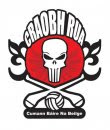In the Pharmaceutical Industry, companies like Pfizer, Eli Lilly etc spend billions of dollars developing new products. When they finally get the product to the market, they are protected by patents (which means others can't reproduce the same product for a defined period of time). This allows them to charge a premium price to recoup the R&D costs and also to turn a profit to reward their innovation. Once the patent expires, companies can replicate their product, without incurring any of the development costs and sell on the market for a fraction of the price. These products become known as generic drugs.
The coaching world is not that different in many ways, excluding the monetary element. You will find very innovative coaches, developing new methods. Soon, these methods will be observed by the masses and replicated on fields all over the place. What you have then are innovative coaches and generic coaches. At the beginning of your career it is ok to be a generic coach but you should remember, if you follow the generic model, the best you can hope to achieve are the same results as everyone else. This works in the pharmaceutical industry because the goal is to make people better. You can't really make someone better than better so each drug's endpoint is the same.
However, when coaching, you must have a different end point to the competitor or else every game, in theory at least, would end in a draw. For a certain period of time and at a certain level, generic will work because maybe you have better players or have just mastered the generic model better than others. To progress beyond that and ensure you have an edge on opponents, you must go a step further than the generic drug companies and become innovative yourself.
Here we arrive at a potential blocking point for us Irish. It is something I have observed through my work. When I was in Graduate Recruitment I interviewed candidates from all over Europe and beyond. We also attended University fairs across Europe. This experience highlighted a major contrast between the education systems in Ireland and those in countries like Holland, Germany or the US.
The Irish student, allowing for generalisation, is one who likes to cram. In the days up to an exam they will overload on facts and figures and then on the day, they will transfer these from their brain through their pen and onto the paper. The bell will signal the end of the exam and with it, the student will head for the bar and never give the content a second thought again. When they present themselves at interviews or job fairs, they haven't thought out the career which they want to pursue. It is as if they are coming to you looking for guidance.
The US student, as an example, will have been educated in an environment where they are encouraged to think, allowed scope and expected to have their own opinions and develop their own philosophies. They have also a clear image of where they want to go after study. This is the key difference - they are taught and encouraged to think. With this skill you can transform yourself from a generic coach to an innovative coach.
I've been reading a lot of material about training lately and the one thing that you never hear top coaches or coaching tutors give to developing coaches, especially in the area of strength and conditioning, is criticism. They always encourage the coach and will offer advice on how to develop their methods. This advice will revolve around principles. We can call these the ‘’what’’. Defining the “how” cannot be done in a one size fits all manner and shouldn't be approached in that way, otherwise you remain generic. It should also be said that these experienced coaches are very much interested in two way communication so that they can take every opportunity to learn themselves.
So a coach should understand they have a freedom to think and use the principles as the road map. Systems and styles of play should be built in consideration of the talent you have available. Drills should be focused on developing the skills required to execute within the chosen system. Drills practice skills or patterns. How they are structured is totally up to the coach. How you place your cones or organise your drills is up to you and you should have the courage to experiment and not be afraid to make a balls of it.
Often, practically all the time in fact, the best learning comes through your failures. This learning will only come about through thought and reflection and this is the key to becoming an innovator.
Thursday, February 3, 2011
Subscribe to:
Post Comments (Atom)

No comments:
Post a Comment